Coronavirus: Head-shaking doctors and non-hand-shaking workers
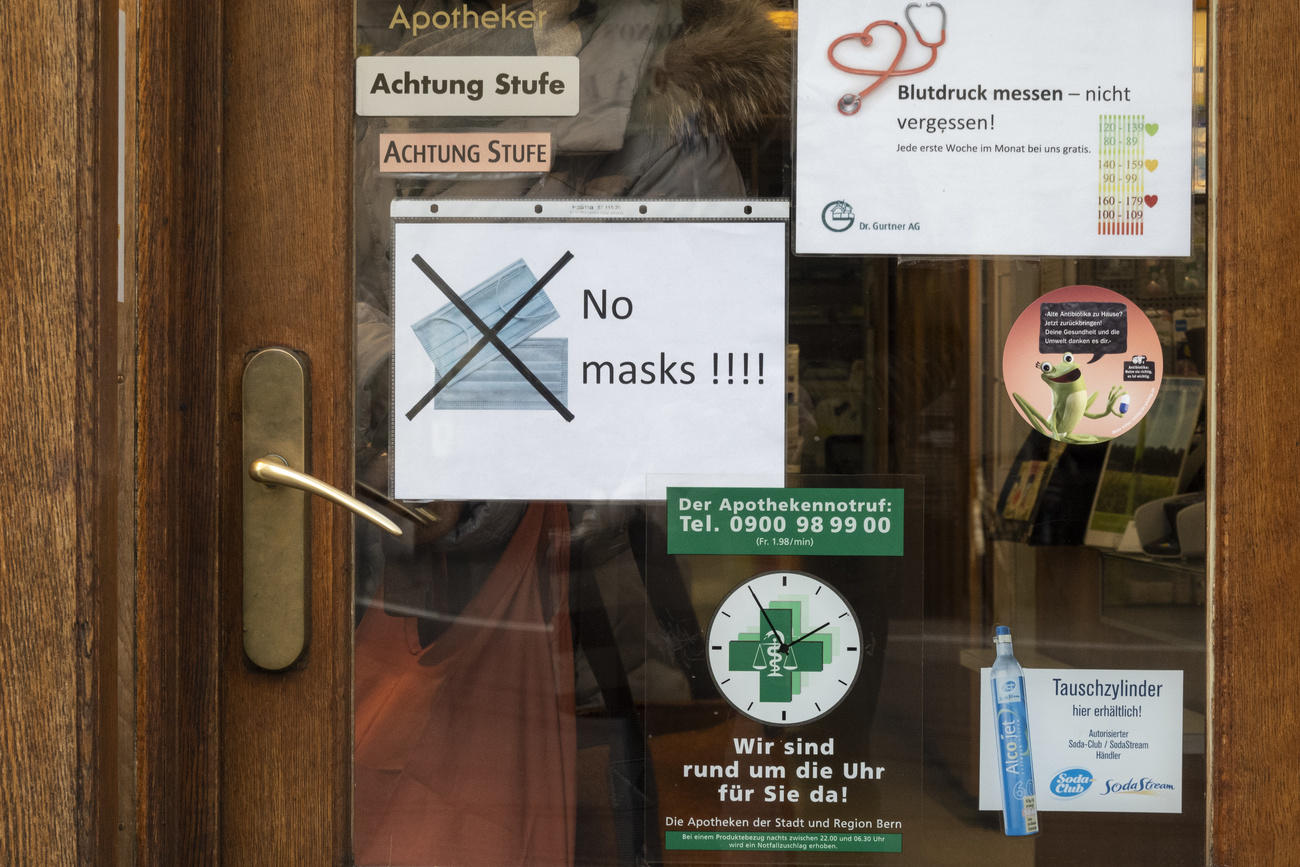
A day after the first confirmed case of the COVID-19 coronavirus in Switzerland, newspaper headlines include companies banning handshakes and doctors accusing the government of “irresponsibly” underestimating the danger.
“There’s absolutely no point in spreading panic, and the public mustn’t be intimated,” says Christian AlthausExternal link, an epidemiologist at the University of Bern. “But they must know that an epidemic will come to Switzerland.”
On Tuesday the Federal Office of Public Health said a 70-year-old man had tested positive for the coronavirus in the southern canton of Ticino, on the border with Italy.
Althaus has been highly critical of the health office, which in his view has “irresponsibly misjudged” the danger of COVID-19. In a tweet he warned that Switzerland faced one of the “greatest health emergencies in its recent history” and pointedly suggested the government invest in epidemic planning instead of fighter jets.
Die Schweiz steht vor einer der grössten gesundheitlichen Notlage ihrer jüngeren Geschichte. Bisher kein Wort eines Bundesrates. Wie wäre es, wenn wir zukünftig in Pandemieplanung statt Kampfjets investieren? @BAG_OFSP_UFSPExternal link @vbs_ddpsExternal link https://t.co/k6dGLrGHIgExternal link
— Christian Althaus (@C_Althaus) February 22, 2020External link
In an interviewExternal link with the Neue Zürcher Zeitung (NZZ) on Wednesday, he continued his criticism, saying he could imagine that the public health office, which says the risk to the publicExternal link is “moderate”, has too few experts able to assess the complex epidemiological issues.
“And unfortunately, there’s relatively little communication between experts within Switzerland as well as abroad who could supply this information and support the health office,” he said.
Infection rates
Althaus says a worst-case scenario of 30,000 deaths in Switzerland “can’t be ruled out” and warns about hospitals not being able to cope. When the NZZ pointed out that initial estimates of the 2009 swine flu turned out to be much too pessimistic, he said he’d be “delighted” if he and all the other experts were completely wrong, “but unfortunately it’s very unlikely”.
He admitted that with hindsight people overreacted in 2009, “but the situation now is totally different. I can imagine that [the swine flu] story continues to have an influence at the health office. That’s why people there assume, based pretty much on a gut feeling, that the current epidemic will play out like the one 11 years ago”.
The World Health Organization (WHO) and other sources are estimating the infection rate of COVID-19 is higher than seasonal flu and swine flu but considerably lower than measles. Swiss public televisionExternal link SRF says latest WHO figures put the mortality rate of COVID-19 at about 3.4% in China and about 1.1% outside China.
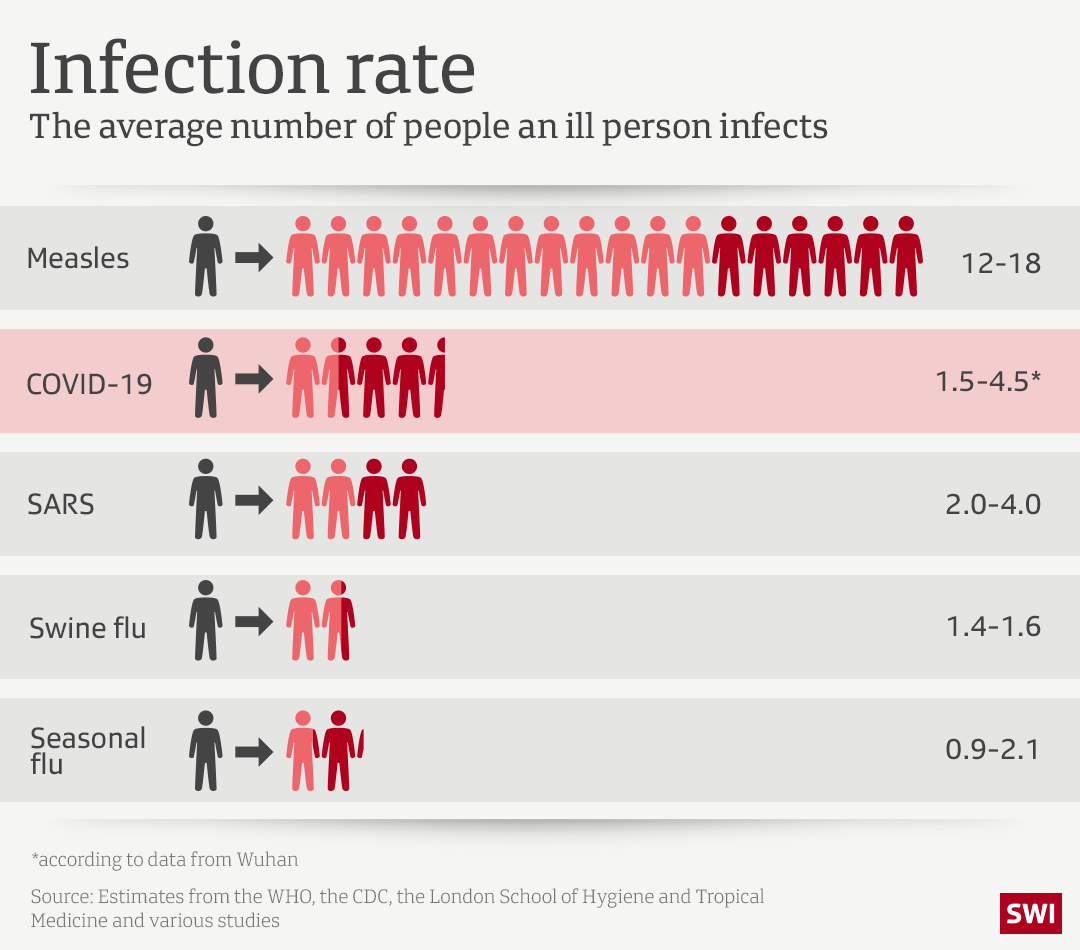
Althaus was supported by the president of the Ticino Medical Association. “The Federal Office of Public Health has underestimated the problems for canton Ticino and the events in Lombardy,” Franco Denti told 20MinutenExternal link on Tuesday.
“Until last Friday the health office certainly did not act correctly. Just wearing masks, as per their recommendations, is nowhere near enough. We expect clear answers and measures to help stop and limit the epidemic,” he said.
Hygiene measures
So what should people be doing? While the WHO has detailed adviceExternal link on how individuals can protect themselves and prevent the spread of the virus, the Tages-Anzeiger newspaper in Zurich says “there’s only one thingExternal link that protects people from the virus – and everyone’s doing it wrong”.
“Only handwashing is reliable protection against viral and bacterial diseases,” it says, pointing out that “more than 90%” of people aren’t doing it properly: thumbs and fingertips are apparently often overlooked. In its online article, the Tages-Anzeiger included a WHO video on correct handwashing technique.
Perhaps aware of this, a range of Swiss companies have told employees to avoid shaking hands.
A poster in a canteen of cement company Holcim in eastern Switzerland shows a handshake in the middle of a red “forbidden” sign. The poster didn’t explicitly mention coronavirus, but one Holcim worker told 20MinutenExternal link that while it frightened some employees, “others, like me, think it’s good that our company is providing clear instructions”. Holcim said it simply wanted to raise awareness among staff.
Telecoms operator Swisscom advised workers on its intranet to avoid touching their faces, to wash their hands frequently, and to not shake hands. “The same protective measures apply as for seasonal flu,” said spokeswoman Sabrina Hubacher.
Retail giant Coop and the Swiss Post also said they had advised staff to follow standard hygiene measures.
“With an epidemic we also recommend not shaking hands or greeting people with a kiss, as well as keeping a distance of a metre when talking to someone,” said Post spokesman Erich Goetschi.

More
Switzerland confirms first coronavirus case

In compliance with the JTI standards
More: SWI swissinfo.ch certified by the Journalism Trust Initiative



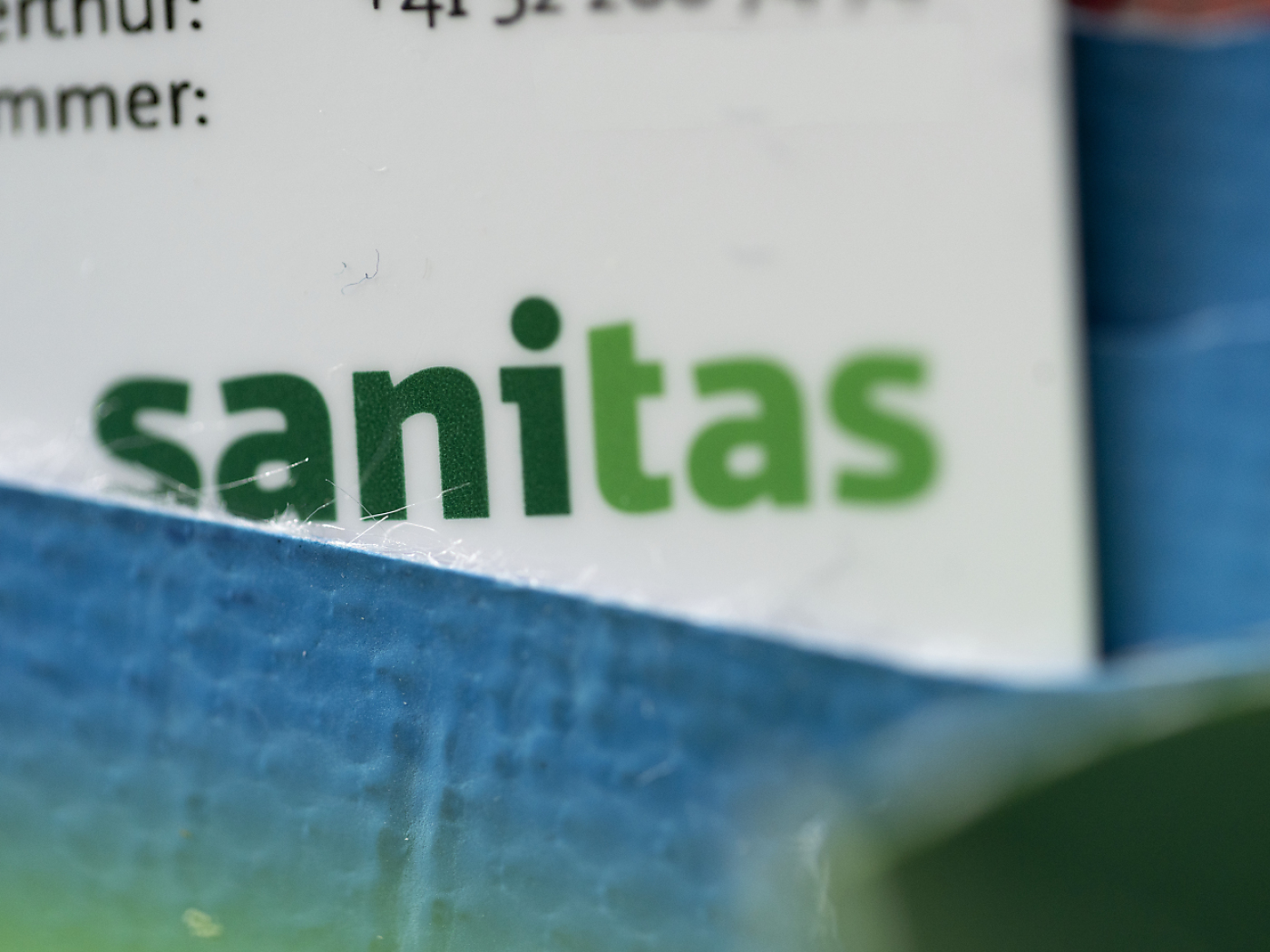

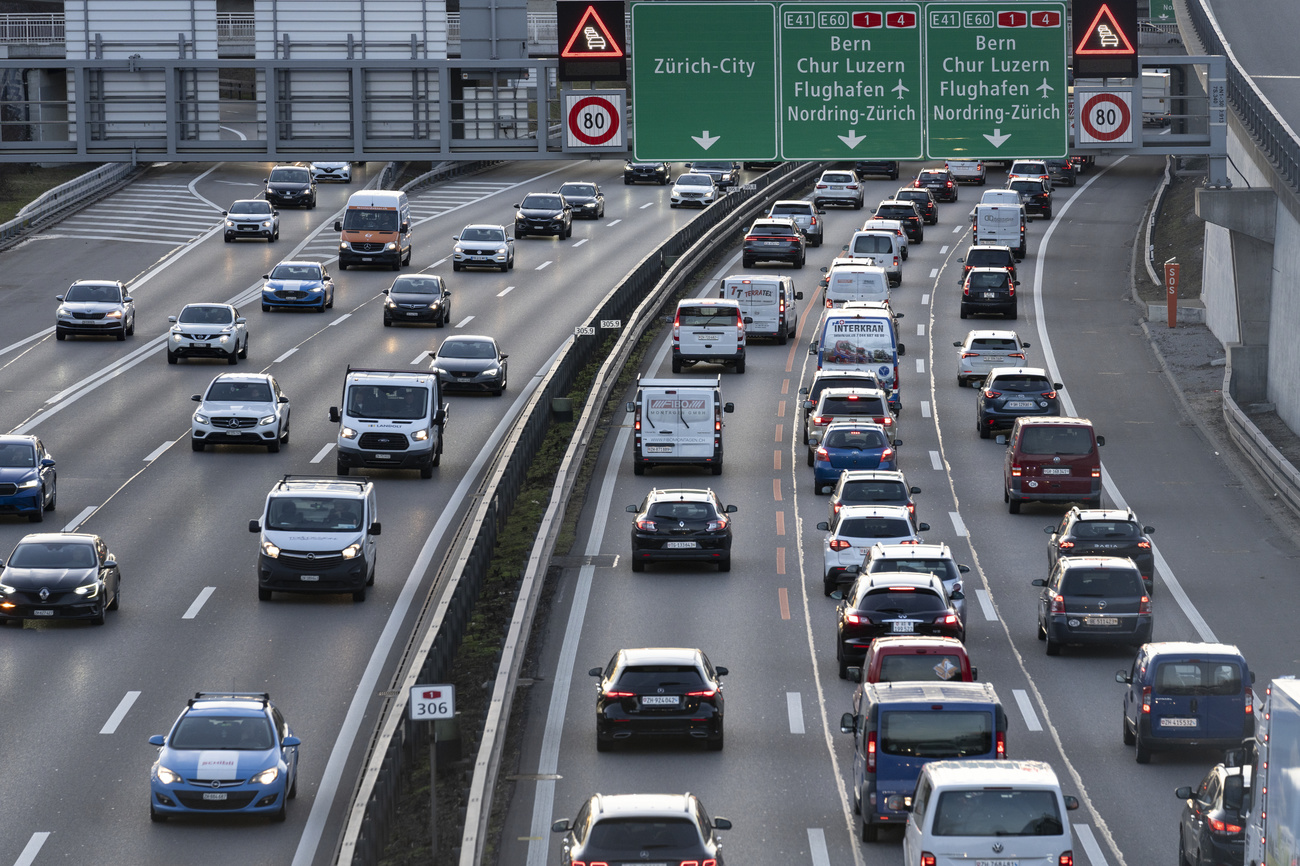



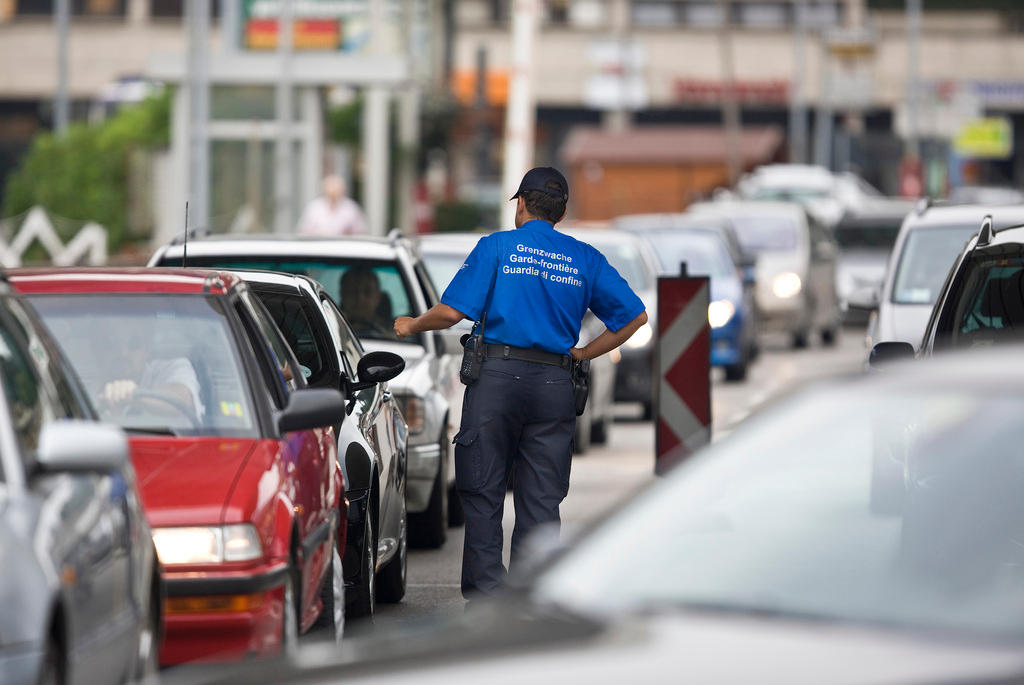

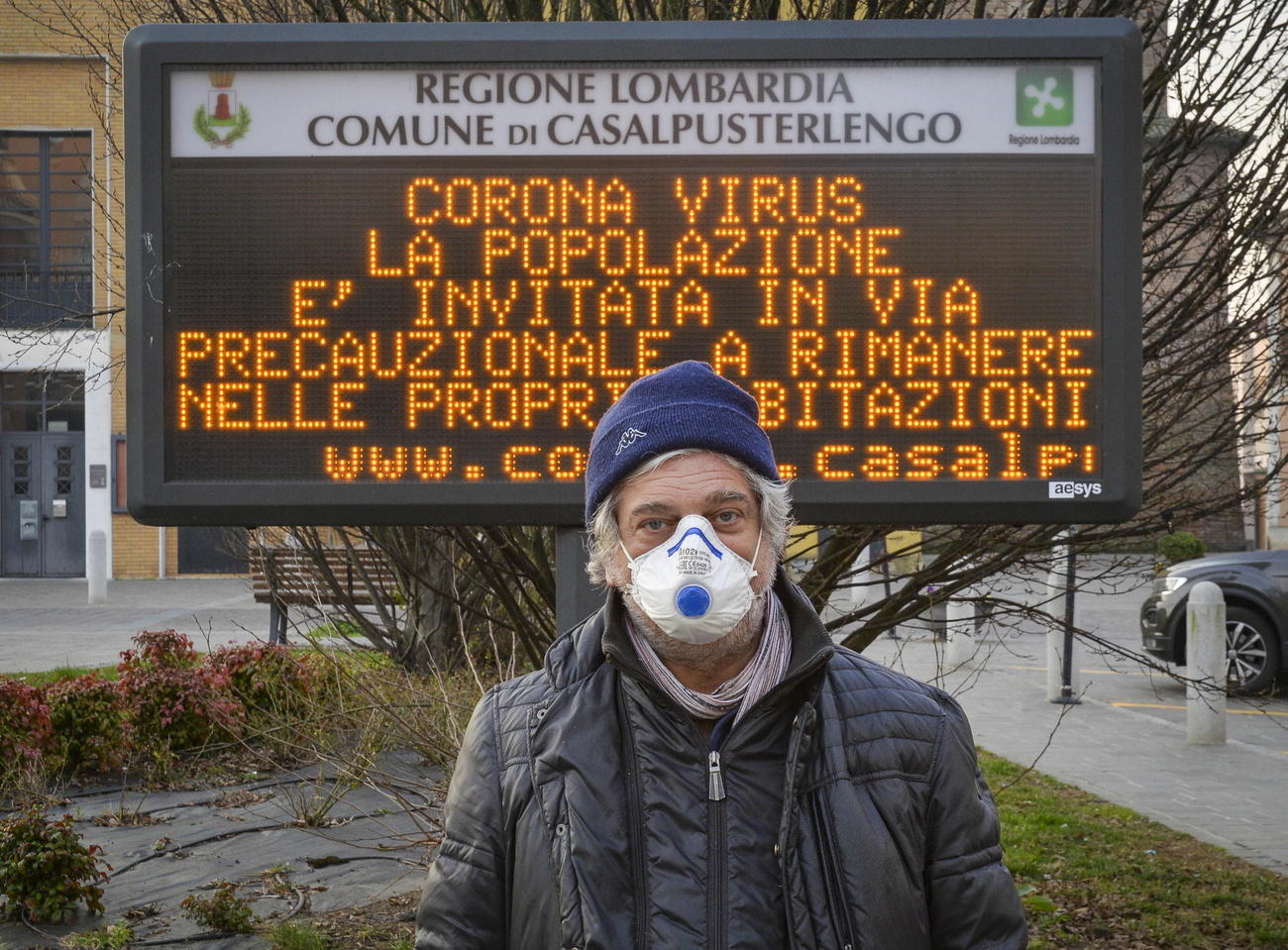
You can find an overview of ongoing debates with our journalists here . Please join us!
If you want to start a conversation about a topic raised in this article or want to report factual errors, email us at english@swissinfo.ch.